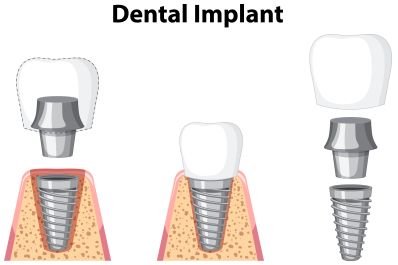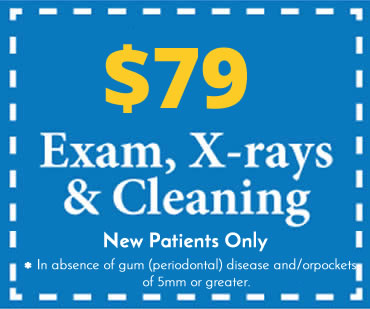When To Choose Mini Dental Implants
If you are considering dental implants to replace missing teeth, you may have come across mini dental implants. Mini dental implants are a smaller version of traditional dental implants.
They are typically less than 3mm in diameter and can be used for a variety of situations. In this article, we will discuss the benefits of mini dental implants and when they might be a good option for you.
What are Mini Dental Implants
Mini dental implants (MDIs) are small titanium screws that are placed into the jawbone to replace missing teeth or provide stability for dentures. MDIs can be used in cases where traditional implant surgery is not an option due to limited bone density or other factors. Unlike traditional implants which require multiple appointments and surgeries, MDIs can often be placed in a single visit with minimal discomfort.
Benefits of Mini Dental Implants
One major benefit of MDIs is that they require less invasive surgery compared to traditional implant procedures. This means that patients experience less pain and swelling during the procedure as well as reduced recovery time after the surgery is complete. Additionally, since MDIs do not require bone grafting in most cases, they tend to be more affordable than traditional implants.
Another benefit of MDIs is their versatility. They can be used to replace single teeth or several teeth at once as well as support full or partial dentures.
Furthermore, they offer excellent long-term stability, making them an effective solution for many different types of patients. Overall, mini dental implants offer many benefits that make them an attractive option for those who need tooth replacement procedures but want something less invasive than traditional methods.
When to Choose Mini Dental Implants
If you have limited jawbone density
One of the primary reasons why mini dental implants are a popular option is that they require less bone density than traditional implants. If you have limited jawbone density, this means that there may not be enough bone to support a traditional implant. Mini dental implants are an ideal solution in this case, as they can be placed in areas where there is less bone density without the need for a bone graft.
If you need to replace a single tooth or several teeth
Mini dental implants are particularly suited for those who need to replace one or several teeth. They are smaller in size than traditional implants and can be used to secure individual crowns, bridges, and even dentures. Whether you lost your tooth due to decay or an injury, mini dental implants can help restore your smile and improve your quality of life.
If you are looking for a less invasive procedure
Unlike traditional dental implant surgery that requires cutting into the gums and drilling into the jawbone, mini dental implant surgery is minimally invasive. The procedure usually takes less time, involves fewer incisions, and requires less recovery time compared to traditional implants. This makes it an excellent option for people who wish to avoid more invasive procedures.
If you want a quicker recovery time
Mini dental implants offer not only a minimally-invasive procedure but also faster healing times than conventional implant surgery. Traditional implant surgery requires several months of waiting for the post-implant osseointegration process before attaching abutments and prosthetic teeth while mini-dental implants require only 48 hours before loading permanent restorations like dentures or crowns onto them.
If any of these situations apply to you, it’s worth speaking with your dentist about whether mini dental implants might be right for you. They provide an excellent alternative to traditional implants with their minimally-invasive procedure, faster healing times, and suitability for those with limited jawbone density or who need to replace one or several teeth.
Benefits of Mini Dental Implants
Less Discomfort During and After the Procedure
One of the biggest advantages of mini dental implants is that they are less invasive than traditional implants. Because they are smaller in size, they require less drilling and cutting into the gum tissue and jawbone.
This means that there is often less discomfort during and after the procedure. Patients typically experience minimal swelling and pain, which means that recovery time is also shorter.
Shorter Healing Time
Compared to traditional implants, mini dental implants offer a significantly shorter healing time. This is because there is less trauma to the surrounding tissues during placement.
Patients can typically resume their normal activities within a few days after the procedure. In some cases, patients may even be able to eat soft foods immediately after implant placement.
Lower Cost Compared to Traditional Implants
Another major benefit of mini dental implants is their lower cost compared to traditional implants. Because mini implants are smaller in size, they require fewer materials and are generally quicker and easier to place than traditional implants. The reduced treatment time required for mini dental implant placement can translate into substantial cost savings for patients.
No Need for Bone Grafting in Most Cases
Mini dental implants can often be placed without the need for bone grafting procedures beforehand. This is because mini dental implants require less bone density than traditional implants do, which makes them a great option for patients who have experienced bone loss due to missing teeth or other oral health issues. Overall, if you’re looking for a more affordable and less invasive way to replace missing teeth or secure dentures, then mini dental implants may be an excellent option for you!
The Procedure for Mini Dental Implants
Mini dental implants are a great option for people who want to replace missing teeth or stabilize dentures. The procedure is less invasive and generally takes less time to complete than traditional dental implants. Here’s what you can expect during the mini dental implant procedure.
Consultation with the dentist
The first step in the mini dental implant process is a consultation with a dentist or oral surgeon. During this initial exam, your dentist will evaluate your oral health and determine if mini dental implants are right for you. They will examine your jawbone density, discuss any medical conditions that may affect the procedure, and go over your options for anesthesia.
Placement of the implant into the jawbone
Once you’ve decided to move forward with mini dental implants, the next step is placement of the implant into your jawbone. Your dentist or oral surgeon will make a small incision in your gums and insert the titanium post that will serve as the anchor for your new tooth or denture stabilization system. This step typically takes about an hour to complete, depending on how many implants need to be placed.
Attachment of the abutment and crown
After allowing time for osseointegration (the process by which bone fuses with titanium), which usually takes 4-6 months, it’s time for attachment of the abutment and crown. During this stage of treatment, your dentist will attach an abutment (a connector piece) to each implant post that protrudes above gum level. The abutment serves as an anchor point for connecting a crown (replacement tooth) or bridge.
The entire mini dental implant procedure usually takes only one day but may require more visits if multiple teeth need replacement. Your dentist will provide you with post-operative care instructions to ensure proper healing and long-lasting results.
Aftercare for Mini Dental Implants
Proper oral hygiene practices, including brushing and flossing regularly
After your mini dental implant procedure, it’s crucial to maintain good oral hygiene to ensure the longevity of your new implants. Brush your teeth twice daily with a soft-bristled toothbrush and fluoride toothpaste. Floss at least once a day to remove any plaque or debris that may have accumulated between your teeth.
If you have difficulty brushing or flossing around the implant site, use an interdental brush or water flosser to clean those hard-to-reach areas. Be gentle when cleaning around the implants as excessive force can cause damage.
Regular check-ups with your dentist or oral surgeon
It’s essential to schedule regular check-ups with your dentist or oral surgeon after getting mini dental implants. This will allow them to monitor the healing process and ensure that there are no complications.
During these check-ups, they’ll examine the implants and surrounding gums for any signs of infection, loosening, or failure. They may also take X-rays periodically to assess the stability of the implant in the jawbone.
Your dentist may recommend professional cleanings every six months or yearly. During these appointments, they’ll remove any plaque buildup around the implant site and polish your teeth for a brighter smile.
Remember that proper aftercare is critical in maintaining healthy mini dental implants. By practicing good oral hygiene habits and attending routine check-ups with your dentist or oral surgeon, you’ll be able to enjoy your new smile for years to come!
Potential Risks and Complications with Mini Dental Implants
Infection at the implant site
One of the potential risks associated with mini dental implants is infection. While this is a risk with any dental procedure, it is important to take proper care of your implant site to reduce the chances of infection. Your dentist will provide you with detailed instructions on how to care for your implant site during the healing process, including brushing and flossing techniques.
Damage to surrounding teeth or gums
Another risk associated with mini dental implants is damage to surrounding teeth or gums. This can occur during the placement of the implant or later on if there are issues with the alignment or fit of the implant. To prevent damage, it’s important to choose a qualified and experienced dentist or oral surgeon who will carefully evaluate your mouth and ensure that placement is done correctly.
Loosening or failure of the implant over time
While mini dental implants are designed to be a long-term solution for missing teeth, there is still a possibility that they may loosen over time. This can be due to natural wear and tear on the implant, changes in jawbone density, or other factors such as trauma to the area. If you experience any loosening or discomfort with your mini dental implant, it’s important to contact your dentist as soon as possible for evaluation and treatment.
Overall, while there are potential risks associated with mini dental implants, these risks are relatively low compared to other dental procedures. By choosing a qualified practitioner and following proper aftercare instructions, you can significantly reduce these risks and enjoy all of the benefits that mini dental implants have to offer.
Mini dental implants can be an excellent choice
For those who need to replace missing teeth or have limited jawbone density mini dental implants may be the right option. They offer a less invasive and more affordable option compared to traditional implants. Mini dental implants can also provide a quicker recovery time and require less aftercare.
However, it is important to consider the potential risks and complications that may arise with any dental procedure. Infection at the implant site, damage to surrounding teeth or gums, and loosening or failure of the implant over time are all possible concerns.
When considering mini dental implants, it is best to consult with your dentist or oral surgeon to determine if they are the right choice for you. They will be able to evaluate your individual needs and recommend the best treatment plan for achieving a healthy smile.
Overall, choosing mini dental implants can be a life-changing decision that leads to improved oral health and increased confidence in your appearance. So don’t hesitate to explore this option if you think it might be right for you!
Do you live in Huntington Beach or the surrounding area? Our team is ready to help you achieve your smile goals. Schedule your appointment today.




